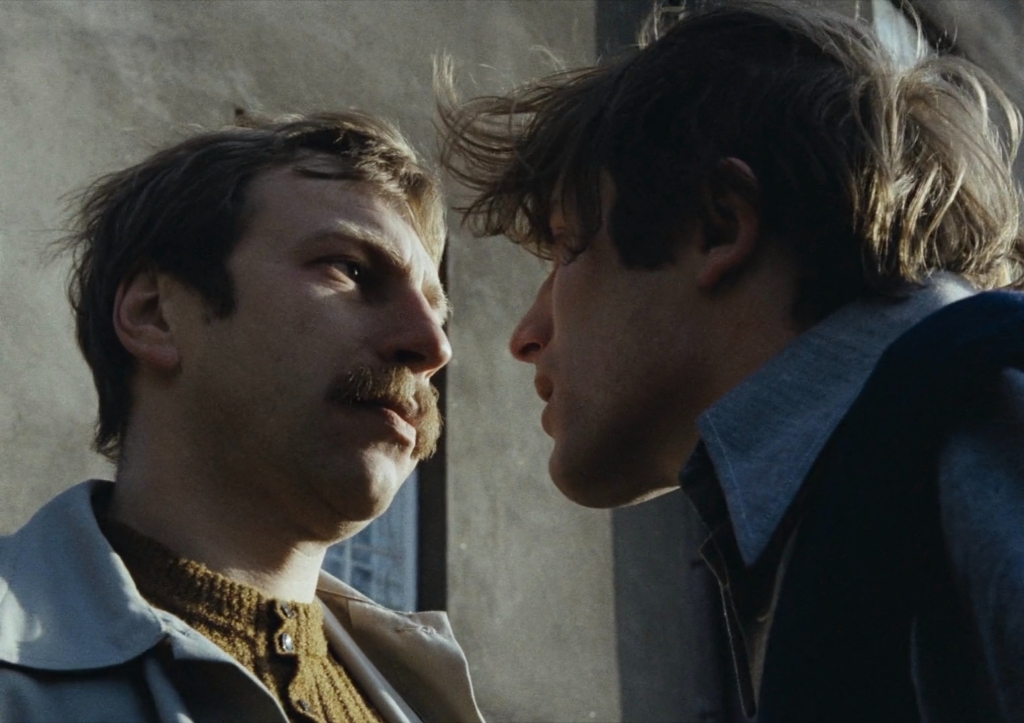Krzysztof Kieslowski | 1hr 52min

It isn’t that Krzysztof Kieslowski lacks a sense of humour, but it is surely no coincidence that whenever small pieces of comedy emerge in his films they are placed in the capable hands of his muse, Jerzy Stuhr. Camera Buff capitalises well on those talents, sending Stuhr’s amateur cameraman into inappropriate situations that he hopes might prove interesting to audiences. He doesn’t discriminate between subjects – when asked what he shoots, his reply is simply “Anything that moves.” Given the success Filip finds in competitions and inspiring others, there is no doubt he possesses the talent to back up his hobby. But there is also an insidiousness to his singularly focused obsession, throwing off his balance of responsibility and passion, and slowly disintegrating his once-happy family life into a fable of poignant tragedy.
Camera Buff remains firmly in the world of social realism that Kieslowski is very familiar with at this point in his career, though his political critiques aren’t immediately so overt. Filip first picks up his camera just before the birth of his daughter, intending to use it to document this precious time in his and wife’s life. If there is one thing that he never loses sight of throughout the film, it is the beauty of mundanity, and it is evident that his ability to preserve these moments in time and share them with others is a truly valuable gift. Problems arise when his camera turns away from his loved ones and towards others, thereby avoiding any opportunity for self-reflection. The lens is his portal into other lives, disconnecting him from his own “quiet life” to the point that it no longer feels like enough.


Kieslowski and Stuhr achieve a fine balance here in their sympathetic development of Filip, never distancing him so much from the audience that he becomes entirely repugnant, even when he acts purely in his own self-interest. His habit of framing his fingers like a camera viewfinder is an amusing mannerism we warm to, though when he is caught out imagining how he might shoot his wife storming out after an argument, it only worsens the situation. Even when he is happy to let his baby keep crying for the sake of a good shot, we still resist despising him too much when his excitement exudes such a genuine innocence.

There is also something of an underdog persona about Filip as well that ingratiates us to his cause. As a labourer working within the rigid structures of Communist Poland, the opportunity to seize on something creative and be recognised for it feels like a victory, and it is within this social context that Kieslowski begins to turn Camera Buff to more serious political critiques of censorship and control. At the factory where he works, the local Communist Party boss enlists him to film its jubilee, and besides a few requests that he cut shots considered too invasive, he does receive praise both from superiors and judges at a film festival. Later when he takes more initiative to capture subjects of his own interest, the pushback grows stronger. Given his value to the Party he is relatively safe from their threats, though his supporters are not so fortunate.

Even as Filip loses his family, Kieslowski still draws out an affecting beauty in his documentaries, suggesting that his obsessive efforts are not entirely fruitless. “It’s beautiful what you guys do. A person’s no longer alive… yet she’s still here,” contemplates one man upon seeing footage Filip shot of his late mother, overtaken with gratitude. Another man, a dwarf with whom he works, is similarly moved by seeing his humble life depicted on film and broadcast on Polish television.
It may be virtuous work, offering others the opportunity to reflect on their lives, though it is also a tool of distraction, letting Filip point the lens in every direction except towards himself. For Kieslowski, neglecting the personal aspect of creation is to disregard its most fundamental foundation, and so it is with that one mind that Filip finally steps in front of the camera to examine his own lonely life. In its dark lens, Kieslowski captures a faint reflection of his face, infused with the very instrument of his obsession. With the closing shot letting Filip dominate the frame in a close-up though, he becomes the independent centre of his own focus, prepared to take responsibility for his actions by finally his own story.


Camera Buff is currently streaming on The Criterion Channel.


One thought on “Camera Buff (1979)”